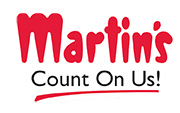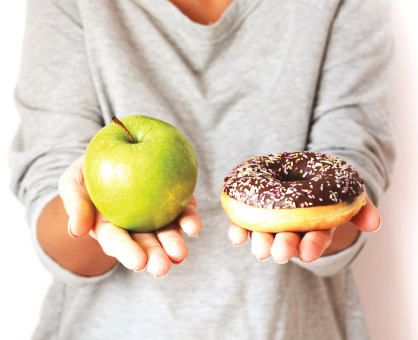You Aren’t What You Eat
“I’m going to be bad and have a piece of cake.”
“You’re so good, you always order a salad.”
It’s common to hear people make assumptions about someone based on the way that they eat.
We mistakenly decide how strong-willed we are based on our food selections and may judge our value as a person by what we eat. But the belief that skipping dessert or choosing a low-fat food makes someone stronger or a better person diminishes our worth and complexity as people. And it doesn’t make much sense.
Our culture’s recent fixation with “clean eating” and “real food” has led to evaluating food (and therefore ourselves) as being “good” or “bad.” Self-worth becomes tied to food choice and assumptions are made about values and self-discipline. But there are many factors that contribute to food selection and all foods provide nutrients that our body can use. Research is clear that the healthiest people eat intuitively and incorporate a variety of foods and food groups in their diet. Guilt and judgment about eating doesn’t lead to increased health and it doesn’t motivate us to improve our health habits.
In fact, obsession with healthy eating can become so excessive that people end up damaging their physical and mental health. Consulting with your dietitian can help you determine how to find appropriate balance, variety, and moderation in your eating.
Labeling certain foods as “good” and others as “bad” maintains this false belief that food choices are related to our value. We incorrectly believe that our food choices directly cause good or bad health when the truth is that eating a carrot doesn’t suddenly make someone healthy and eating a doughnut can’t make someone unhealthy. We are bombarded with information about what we should and shouldn’t eat and forget that our bodies are designed to intuitively guide us with eating, if we are willing to listen.








